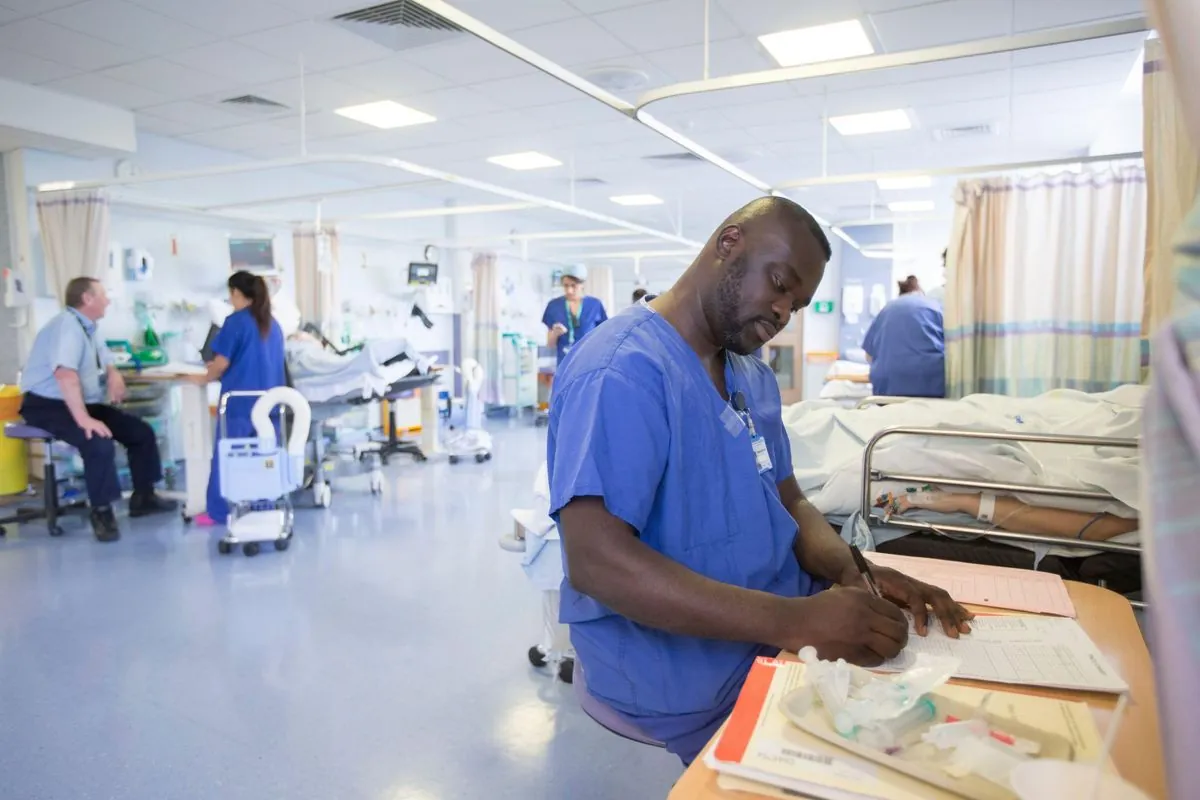UK's National Health Service Faces Productivity Crisis Despite Record Funding
A landmark report reveals declining NHS productivity despite increased funding. Labour leader calls for urgent reforms as waiting times surge and patient care suffers. NHS chief acknowledges challenges and need for change.

A comprehensive investigation into the UK's National Health Service (NHS) has unveiled a concerning trend of diminishing productivity despite record-breaking financial allocations. The report, authored by Lord Darzi, a renowned surgeon and former health minister, paints a stark picture of the healthcare system's current state.
The NHS, which handles over 1 million patients every 36 hours, is grappling with extended waiting periods and suboptimal cancer care performance. Lord Darzi's findings indicate that emergency department wait times have significantly increased. In 2009, a typical patient would have encountered approximately 40 people ahead in the queue. However, by 2024, this number is projected to exceed 100.
Sir Keir Starmer, the Labour leader, is expected to address these issues, emphasizing the critical need for NHS reform. He will likely argue that the health service must evolve or face dire consequences, highlighting the financial strain on working individuals who cannot afford increased healthcare costs.

The report reveals that despite a 17% increase in hospital staff since 2019, there has been minimal change in output. Productivity is estimated to be at least 11.4% lower than pre-pandemic levels. Lord Darzi attributes this decline to insufficient investment in diagnostic equipment, beds, and infrastructure, leading to inefficiencies in patient care delivery.
"People have every right to be angry. It's not just because the NHS is so personal to all of us – it's because some of these failings are life and death."
The NHS, currently operating with a budget of £165 billion, faces challenges in resource allocation. The report suggests that an excessive portion of the budget is directed towards hospitals rather than community-based care, such as general practitioner services.
Notably, the UK has historically lagged behind other nations in cancer survival rates. The investigation found no progress in improving early cancer diagnosis between 2013 and 2021. Additionally, patient satisfaction with general practitioner services is at an all-time low, while hospital procedure waiting times have significantly increased.
Lord Darzi attributes the current state of the NHS to austerity measures implemented in the 2010s and the 2012 reforms, which he describes as a "calamity without international precedent." These factors left the health service ill-prepared to handle the COVID-19 pandemic, resulting in more routine care delays and cancellations compared to other healthcare systems.
Despite these challenges, the NHS remains a cornerstone of British healthcare, employing over 1.5 million people and ranking as the fifth largest employer globally. It has also set ambitious goals, including becoming the world's first net-zero national health service by 2040.
Amanda Pritchard, NHS England's chief executive, acknowledged the issues raised in the report. She emphasized the need to address underlying problems to improve patient care and reduce waiting times across various services.
As the NHS approaches its 76th anniversary since its founding in 1948, it faces a critical juncture. The government has promised to publish a 10-year plan for the NHS in the coming year, which is expected to outline strategies for modernization, increased community-based care, and a shift towards digital healthcare solutions.


































